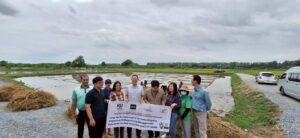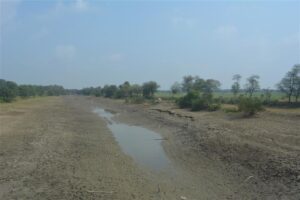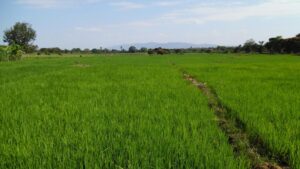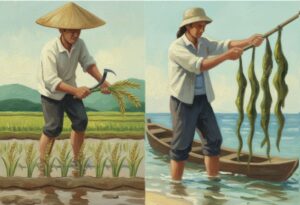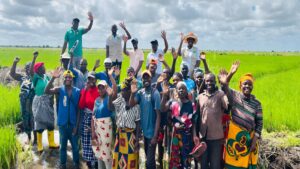
The United Kingdom’s Department for International Development (DFID) is the government department responsible for promoting sustainable development and reducing poverty. The central focus of policy, explained in two white papers of 1997 and 2000, is to achieve by 2015 the internationally agreed Millennium Development Goals. These seek to:
• Eradicate extreme poverty and hunger,
• Achieve universal primary education,
• Promote gender equality and empower women,
• Reduce child mortality,
• Improve maternal health,
• Combat HIV/AIDS, malaria and other diseases,
• Ensure environmental sustainability,
• Develop a global partnership for development.
Agriculture, in its broadest sense, is responsible for making the connections among these areas, especially in the poorest countries whose economies have not yet diversified and where the great majority of people still live in rural areas. Furthermore a study on agricultural productivity and poverty alleviation that appeared a few years ago in Development Policy Review showed that growth in agriculture benefits the poor more than growth in any other sector, and that yield increases of just 1% reduce the proportion of people living on less than $1 per day by 0.6-1.2%.
Regional disparities
Since 1970, largely due to technical advances made by agricultural research organizations throughout the world, global food production outstripped population growth, but the average figures disguise big regional disparities. In Southeast Asia, Green Revolution technology saved millions of lives and lifted millions out of poverty by providing a platform for diversified economic growth. In contrast, agricultural production declined by 5% in sub-Saharan Africa between 1980 and 2001, and the number of people suffering hunger increased by half. Even in Asia rates of productivity growth are slowing, and many people have never benefited from Green Revolution technology. In India alone some 300 million people still live in extreme poverty.
Basically, agriculture has performed badly in areas where it needs to work well. Consequently in recent years donor funding for agricultural research investments in rural development has declined dramatically in real terms, and the relevance of agriculture has been called into question. DFID has been working on policy options to harness renewed interest in agriculture by developing-country governments and international agencies. The U.K. recognizes that more aid spent on agriculture will on its own achieve little and has prioritized the need to identify and adopt practical measures that will unlock the potential of agriculture for poverty reduction. The international development community needs to work together to find approaches that can work in situations far less favorable to smallholder farming than those experienced in the first Green Revolution in Asia.
Partnerships
Even in the past decade, when funding for research became much tighter, DFID maintained its support for international agricultural research. Total contributions in 2002 to the Consultative Group on International Agricultural Research (CGIAR), IRRI’s parent organization, were around £15 million, making DFID one of the largest donors after the World Bank. In addition, many CGIAR centers already participate in research conducted through bilateral research programs. It is anticipated that such productive partnerships will continue under the new research strategy that DFID is currently developing. Recent work by the International Food Policy Research Institute, partly supported by DFID, has shown the widespread and diverse impact of international agricultural research by the CGIAR, much of which has directly benefi ted the poor. An important finding is that increased returns for farmers often make up only a small proportion of the benefits, the main gains arising from lower food prices due to supply increases, which benefit both urban and rural poor. Such impacts were an influential factor in the decision to increase DFID support to the CGIAR by £30 million over the next 3 years.
_________________________________________
Dr. Wadsworth is the adviser in the Central Research Development of DFID’s Policy Division


